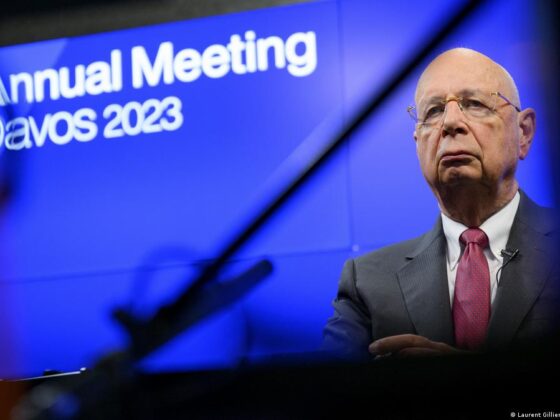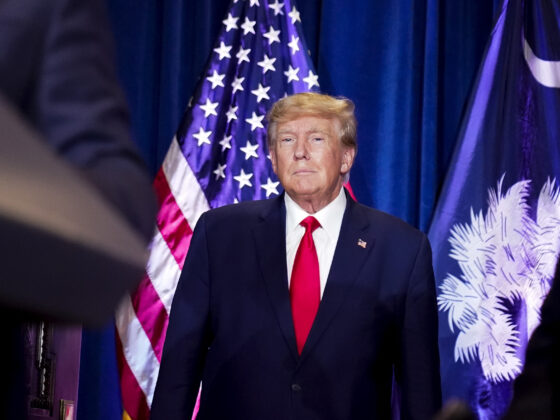The US regulatory regime is coming for crypto from several directions, and it would be disingenuous to say no one saw this day coming.
Of course we did. The fight to “legitimize” cryptocurrencies came with the whole legal and political juggernaut of government. The adage “be careful what you wish for” couldn’t be more applicable than it is with cryptocurrency.
That being said, we also knew that the government is downstream of the private sector by several years. The government could never really innovate a way to keep up with the technology, much less get ahead of it.
But that realization didn’t mean governments would leave crypto alone. It simply meant they would drop their boot on the whole operation if they felt even slightly intimidated by it. Misery loves company, and when the US dollar is in a gutter, it won’t abide being outdone by crypto.
If you can’t beat them, sue them. And that’s what seems to be happening. Jason Allegrante, chief legal and compliance officer at digital asset bank FireBlocksU.S. regulators are working to “push out crypto by creating legal adversity and also legal uncertainty,” and I’m inclined to agree. It’s difficult to see something other than this.
-
In March, the US Securities and Exchange Commission (SEC) issued a Wells notice to Coinbase, which is a formal notice from the SEC informing them the agency intends to bring enforcement actions against them. The notice was to do with some of Coinbase’s offerings in the spot market as well as its Earn, Prime and Wallet products.
The notice unto itself doesn’t necessarily mean there will be any charges brought, but it did jar the value of their shares by 13% upon the announcement.
Moreover, this comes in the wake of the FTX collapse, where regulators have a particular hair across their asses with unregistered activity like “staking”, a process where “cryptocurrency holders volunteer to take part in validating transactions on the blockchain“. Coinbase’s “Earn” product would fall into the category.
-
The RESTRICT Act is on the table, albeit with considerable push-back from all sides of the political spectrum. It’s being sold as a means to “ban TikTok”, but the vague nature of its verbiage suggests otherwise.
What does a bill purportedly meant to put the kibosh on a social media platform have to do with crypto? According to U.S.-based think tank Coin Center, “the RESTRICT Act has a similar precept to the International Emergency Economic Powers Act, which allowed the Treasury’s Office of Foreign Assets Control (OFAC) to prohibit U.S. citizens from transacting with sanctioned entities.“
They aren’t only ones. In fact, Josh Hawley rolled out an iteration of this bill suggesting this very thing. Hawley’s bill would direct the president to use the International Emergency Economic Powers Act to specifically “block and prohibit all transactions” and to “prevent commercial operation of” TikTok parent company ByteDance in the U.S.
Here’s what Senator Mark Warner of Virgina’s version contains:
… [It] would grant the U.S. secretary of commerce the broad power to “identify, deter, disrupt, prevent, prohibit, investigate, or otherwise mitigate … any risk arising from any covered transaction by any person, or with respect to any property” that the secretary determines to pose “an undue or unacceptable risk” in several different areas. These include federal elections, “information and communications technology products and services,” and “critical infrastructure or digital economy,“ as well as “coercive or criminal activities by a foreign adversary that are designed to undermine democratic processes and institutions or steer policy and regulatory decisions in favor of the strategic objectives of a foreign adversary to the detriment of the national security of the United States.”
Does this mean the end of VPNs? Does this mean the end of crypto? Who knows? The US Secretary of Commerce knows, and they decide what all this includes.
Austin Federa, the head of strategy at Solana Foundation tweeted: “The TikTok ban rhetoric should worry everyone in crypto in the US — not because of TikTok itself, but because of what it could mean for the ability to publish and distribute software some politicians don’t like, which is protected under the first amendment.”
-
And just last week, The U.S. Commodities Futures Trading Commission (CFTC) filed a lawsuit against Binance, along with its CEO, Changpeng Zhao, and former chief compliance officer Samuel Lim.
Binance is a heavy hitter in liquidating crypto, as well as a beneficiary of the FTX collapse. By the end of last year, Binance had a 92% market share of the total volume of Bitcoin transactions. It also controls about 60% of world crypto trading.
Here is what happened, according to Forbes: On Monday, the CFTC issued a complaint against Binance, alleging the company offered crypto derivatives, such as futures or options contracts, with leverage for assets such as bitcoin, ether, and litecoin to U.S. persons without registering as a futures commodity merchant. Even though Binance is not based in the U.S., in fact it has no official headquarters, if it services U.S. customers it must comply with U.S. law.
And here is what the CFTC is seeking, according to Cointelegraph: The CFTC has demanded a ban on Binance, Zhao, Lim and all affiliates from trading on registered entities, holding any commodity interest, registering or exempting with CFTC or acting as a principal, officer or employee of a registered entity. It has also demanded that Binance pay back the trading profits, revenues, commissions and fees derived from U.S. customers, as well as pay civil penalties assessed by the court and stand a jury trial on this matter.
I’m loathed to think what constitutes “success” with regards to the CFTC’s ambitions here. I know the stated goal is always something to do with “bad actors” and “evil doers”, but the actual ideal looks a lot like pushing Binance out of the US and choking the liquidity source.
Putting crypto products under a microscope and threatening regulatory action, pushing legislation that could put the US Secretary of Commerce in charge of what software and platforms we can use to engage in commerce or communication, and striking at the largest crypto exchange is about sending a message.
Whether the message is the US government will no longer tolerate crypto, or if it’s about bringing that industry to heel is yet to be known. But the US is increasingly demonstrating it is not a safe place for crypto.














